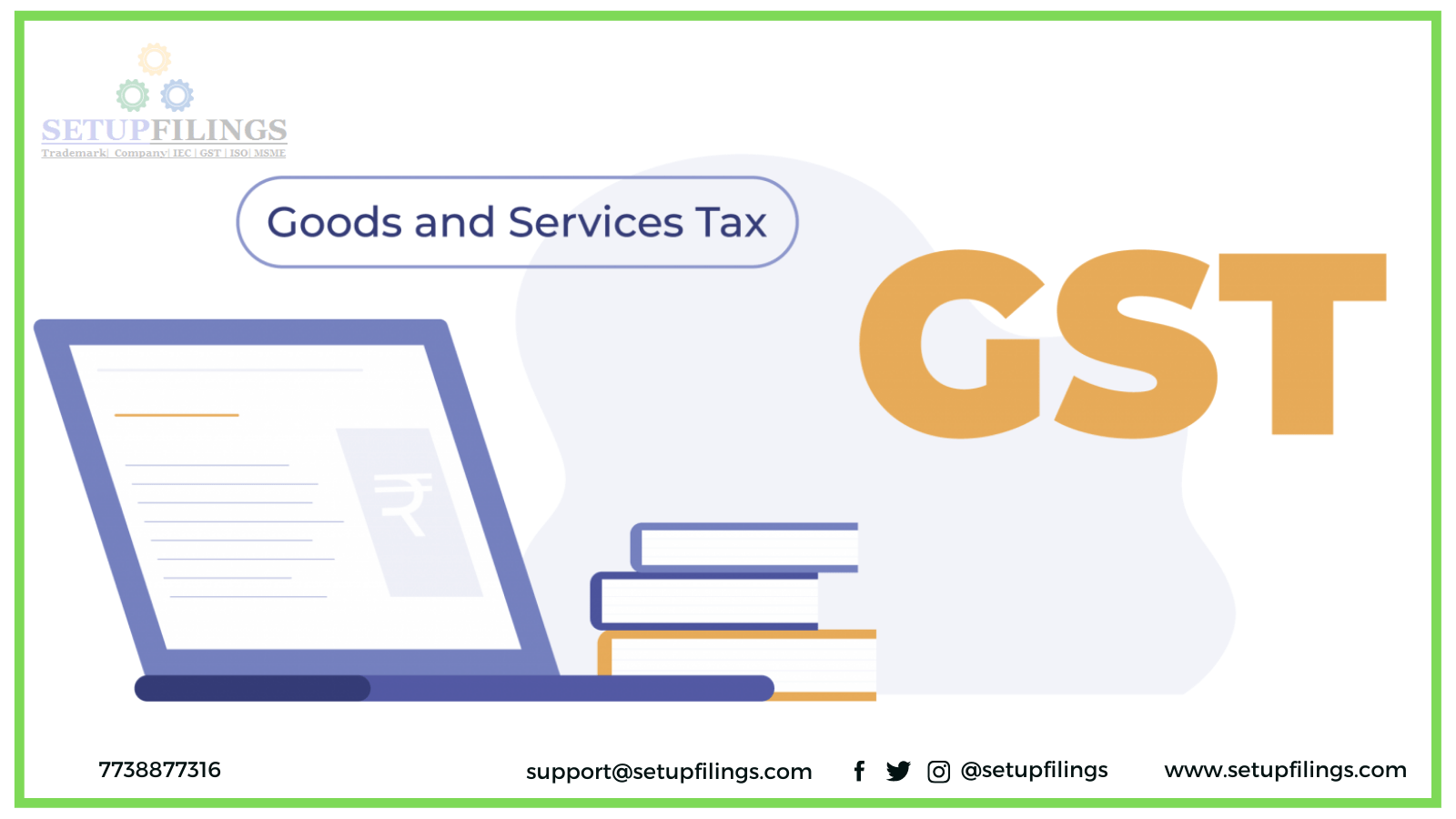
GST Additional Place of Business | A Complete Guide
Are you a business owner looking to expand your operations to new locations? If so, have you considered the impact of Goods and Services Tax (GST)? GST is a tax reform that has been implemented in many countries worldwide, including India. It has transformed the way businesses operate, making it easier to do business across state lines and reducing the burden of multiple taxes by gst additional place. But how can GST benefit your business expansion plans?
In this article, we will explore the advantages of expanding your business to new locations under the GST regime. From increased cost savings to streamlined compliance, there are many reasons why GST can be a game-changer for your business growth. So, let’s dive in and explore the benefits of GST and how it can help you take
your business to the next level.
Understanding the impact of GST on businesses
GST is a comprehensive indirect tax levied on the supply of goods and services across India. It has replaced multiple taxes such as excise duty, service tax, and state-level VAT. The implementation of GST has simplified the tax structure and made it easier for businesses to operate across state lines. Under the GST regime, businesses are required to register and file returns based on their annual turnover.
The impact of GST on businesses is significant. It has reduced the compliance burden for businesses and has made it easier for them to operate across different states. Businesses can now claim input tax credit (ITC) on goods and services used for business purposes, which has reduced the overall tax burden. GST has also improved the supply chain efficiency by eliminating the cascading effect of taxes, which has resulted in cost savings for businesses.
Overall, GST has created a level playing field for businesses, irrespective of their size and location. It has reduced the tax burden and has made it easier for businesses to expand their operations to new locations.
Benefits of expanding your business to new locations
Expanding your business to new locations is a significant decision, and it comes with its own set of challenges. However, with the implementation of GST, businesses can now expand their operations with ease. GST has created a single tax regime for businesses, which has made it easier to do business across different states.
Expanding your business to new locations can result in increased revenue and market share. It can also help you tap into new customer segments and diversify your product offerings. By expanding your operations to new locations, you can reduce your dependence on a single market and create a more resilient business model.
Another advantage of expanding your business to new locations is that it can help you reduce your overall costs. By operating in multiple locations, you can take advantage of economies of scale and reduce your production and distribution costs. This can result in increased profitability and a more sustainable business model.
GST registration for businesses expanding to new locations
Businesses that are expanding their operations to new locations are required to register for GST. GST registration is mandatory for businesses with an annual turnover of more than Rs. 20 lakhs. However, businesses with a turnover of less than Rs. 20 lakhs can also opt for voluntary registration.
To register for GST, businesses must provide their PAN, business address, bank account details, and other relevant information. Once registered, businesses are required to file monthly, quarterly, or annual returns based on their turnover.
GST registration is a simple and straightforward process, and it can be done online through the GST portal. Once registered, businesses can enjoy the benefits of GST and expand their operations with ease.
GST compliance for businesses with multiple locations
Businesses with multiple locations are required to comply with GST regulations for each location. This can be a daunting task, especially for businesses with a large number of locations. However, with the right systems in place, businesses can ensure compliance with ease.
One of the key benefits of GST is that it has simplified the tax structure for businesses. Under the GST regime, businesses are required to file a single tax return for all their locations. This has reduced the compliance burden for businesses and has made it easier to do business across different states.
To ensure compliance, businesses must ensure that they maintain proper records of their transactions and file their returns on time. They must also ensure that they claim ITC only for goods and services used for business purposes. By maintaining proper records and complying with GST regulations, businesses can avoid penalties and fines.
GST input tax credit for businesses with multiple locations
One of the significant advantages of GST for businesses with multiple locations is the availability of input tax credit (ITC). ITC is a mechanism that allows businesses to claim credit for the taxes paid on inputs used in the production of goods or services.
Under the GST regime, businesses can claim ITC for taxes paid on goods and services used for business purposes. This includes taxes paid on purchases made in different states. By claiming ITC, businesses can reduce their overall tax liability and improve their cash flow.
To claim ITC, businesses must ensure that they maintain proper records of their transactions and file their returns on time. They must also ensure that they claim ITC only for goods and services used for business purposes. By claiming ITC correctly, businesses can reduce their tax liability and improve their profitability.
How GST simplifies taxation for businesses with multiple locations
GST has simplified the tax structure for businesses with multiple locations. Under the GST regime, businesses are required to file a single tax return for all their locations. This has reduced the compliance burden for businesses and has made it easier to do business across different states.
GST has also eliminated the cascading effect of taxes, which has resulted in cost savings for businesses. By eliminating the cascading effect of taxes, GST has made it easier for businesses to operate across different states. Businesses can now claim ITC for taxes paid on goods and services used for business purposes, which has reduced their overall tax liability.
Another advantage of GST is that it has reduced the tax rates for many goods and services. This has resulted in increased affordability for consumers and has boosted demand for many products. By reducing the tax rates, GST has created a more conducive business environment, which has resulted in increased business growth.
Common challenges businesses face when expanding to new locations
Expanding your business to new locations comes with its own set of challenges. One of the significant challenges is complying with the different tax regulations in each location. Businesses must ensure that they comply with the tax regulations of each state, which can be complex and time-consuming.
Another challenge is managing the logistics and supply chain for each location. Businesses must ensure that they have proper systems in place to manage their inventory, distribution, and logistics. This requires significant investment and planning, which can be a challenge for many businesses.
Finally, businesses must ensure that they have the right talent and resources in each location. This requires significant investment in hiring and training, which can be a challenge for many businesses.
Strategies for overcoming challenges when expanding to new locations
Expanding your business to new locations requires careful planning and execution. To overcome the challenges of expanding to new locations, businesses can adopt the following strategies:
- Develop a comprehensive expansion plan: A comprehensive expansion plan should include a detailed analysis of the market, competition, and regulatory environment. It should also include a detailed budget and timeline for the expansion.
- Invest in technology: Technology can help businesses streamline their operations and improve their efficiency. By investing in technology, businesses can automate their processes and reduce their costs.
- Hire local talent: Hiring local talent can help businesses navigate the regulatory environment and cultural nuances of each location. Local talent can also help businesses build relationships with local suppliers and customers.
- Build a strong supply chain: Building a strong supply chain requires significant investment in logistics and distribution. Businesses must ensure that they have proper systems in place to manage their inventory, distribution, and logistics.
- Ensure compliance with GST regulations: To ensure compliance with GST regulations, businesses must maintain proper records of their transactions and file their returns on time. They must also ensure that they claim ITC only for goods and services used for business purposes.
By adopting these strategies, businesses can overcome the challenges of expanding to new locations and ensure a successful expansion.
Conclusion: Why expanding your business to new locations under GST is a smart move
Expanding your business to new locations can be a game-changer for your business growth. It can result in increased revenue, market share, and profitability. However, expanding to new locations comes with its own set of challenges, especially when it comes to compliance with tax regulations.
Under the GST regime, businesses can expand their operations with ease. GST has simplified the tax structure and made it easier to do business across different states. By expanding your business to new locations under GST, you can take advantage of the benefits of GST and ensure compliance with ease.
To ensure a successful expansion, businesses must adopt a comprehensive expansion plan, invest in technology, hire local talent, build a strong supply chain, and ensure compliance with GST regulations. By adopting these strategies, businesses can overcome the challenges of expanding to new locations and ensure a successful expansion.
In conclusion, expanding your business to new locations under GST is a smart move that can result in significant business growth. By taking advantage of the benefits of GST and adopting the right strategies, businesses can ensure a successful expansion and create a more resilient business model.
Visited 185 Times, 1 Visit today




